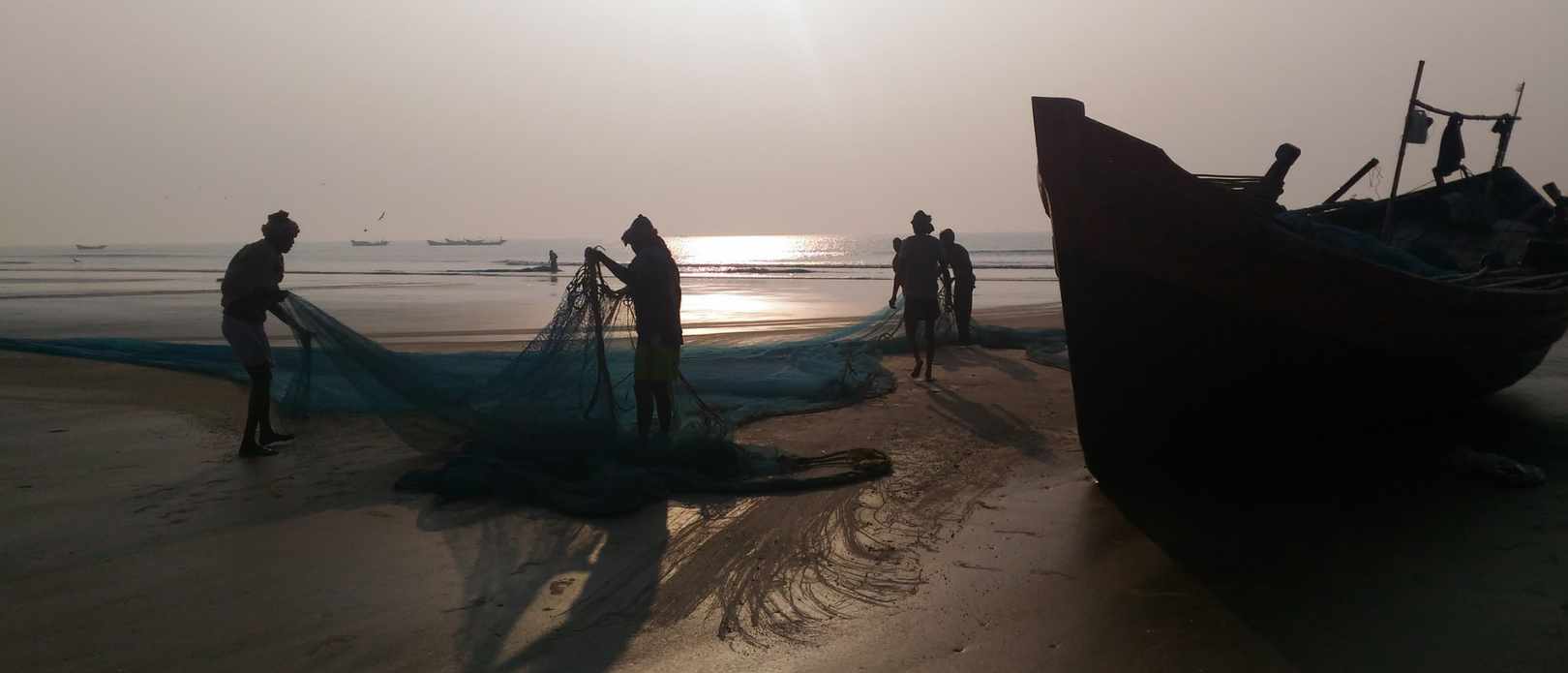SMALL-SCALE ACTORS
Food security for millions undermined by lack of policy support for small-scale fisheries and aquaculture
Paper highlights the important role of small-scale fisheries and aquaculture in supporting livelihoods worldwide and tackling some of the world’s most pressing challenges
- The research stresses the value of small-scale aquatic food producers, traders and processors in global food production
- Yet smaller-scale actors face mounting insecurities that have not been addressed by policymakers
- Technology, investments, policies, and development must enable small-scale actors to continue feeding millions of people into the future
SMALL BUT CRUCIAL: Small-scale fisheries and aquaculture are overlooked by policymakers and decisionmakers despite providing livelihoods for more than 100 million people and sustenance for a billion people worldwide, according to researchers.
In the paper Harnessing the diversity of small-scale actors is key to the future of aquatic food systems, 30 authors led by centre researcher Rebecca Short call for a better understanding of the diversity, roles and resilience of the small-scale fisheries and aquaculture (SSFA) sector.
Centre researcher Beatrice Crona is also among the authors.
The scientists also made the case for ramping up action and investments in this globally important sector.
The paper is one of five initial scientific studies published as part of the Blue Food Assessment.
See overview of all five papers at the bottom of the article.
Best placed for best support
Drawing on 70 case studies from around the world, the research stressed the value of small-scale aquatic food producers, traders and processors, who most recently played a key role in local food security and livelihoods during the Covid-19 pandemic.
In countries like Kenya, for example, small-scale actors quickly filled the gap left behind by larger, international producers who scaled back operations.
Local actors are best placed to support people to eat nutritious food that they want and in a way that is culturally accepted.
Rebecca Short, co-lead author of the paper and researcher at the Stockholm Resilience Centre
Yet smaller-scale actors face mounting insecurities that have not been addressed by policymakers. These include subsidies that are directed only towards larger actors, and a lack of support to deal with the rapidly intensifying effects of climate change.
“The study highlights the diversity of small-scale blue foods producers, which range from state-of-the-art processing plants with imported equipment supplying clams to Uruguayan restaurants, to homemade reed baskets used by local traders in Zambia,” added Stefan Gelcich, co-lead author and Director of the Coastal Social-Ecological Millennium Institute (SECOS), Pontifical Catholic University of Chile.
%20BFA%20Asset%2026d.jpg)
Encourage and support diversity
Shocks to SSFA, without the help of better policy and governance, could threaten the food and nutrition security of millions worldwide. In particular, those in regions currently most vulnerable to food insecurity and the impact of climate change face the highest risks, the paper argues.
The analysis also highlights that women are central to building a more sustainable and equitable food sector.
“Improving food security requires a gender lens to overcome the structural disadvantages that women face,” said Dave Little, co-lead author and professor at the University of Stirling.
Fiorenza Micheli, co-lead author and co-director of Stanford’s Center for Ocean Solutions, added:
“This research comes at a crucial moment for small-scale actors and can help support their viability for the future.”
%20BFA%20Asset%2026a.jpg)
The paper highlighted the need to encourage and support the diversity of small-scale actors, and ensure that technology, investments, policies, and development can enable SSFA to continue feeding millions of people into the future.
Summary of science papers
Food security for millions undermined by lack of policy support for small-scale fisheries and aquaculture
A new paper highlights the important role of small-scale fisheries and aquaculture in supporting livelihoods worldwide and tackling some of the world’s most pressing challenges.
Aquatic foods offer great untapped potential for providing more sustainable diets
First assessment of its kind produces environmental profiles for the full range of aquatic, or blue foods, to help guide more sustainable food production and diets.
Climate change creates ‘double jeopardy’ for fish-dependent countries
A new study highlights the importance of collective action to boost resilience across all aquatic food systems to stave off the worst effects of climate change.
Global demand for aquatic foods set to nearly double by 2050
Improvements to aquaculture production, lower prices, and changing cultural preferences expected to drive up demand for fish, seafood and seaweed, according to new research.
More affordable aquatic foods could prevent 166 million micronutrient deficiencies worldwide, finds new paper
For the first time, the nutritional benefits of thousands of marine and freshwater species have been profiled in a new study.
Short, R.E., Gelcich, S., Little, D.C. et al. Harnessing the diversity of small-scale actors is key to the future of aquatic food systems. Nat Food (2021). https://doi.org/10.1038/s43016-021-00363-0
About the Blue Food Assessment
The Blue Food Assessment (BFA) is an international joint initiative bringing together over 100 scientists from more than 25 institutions. Led by the Stockholm Resilience Centre, Stanford University, and EAT, the BFA supports decision-makers in evaluating trade-offs and implementing solutions to build healthy, equitable and sustainable food systems.
For more information about the assessment, contact:
Sturle Hauge Simonsen, head of communications, Stockholm Resilience Centre








